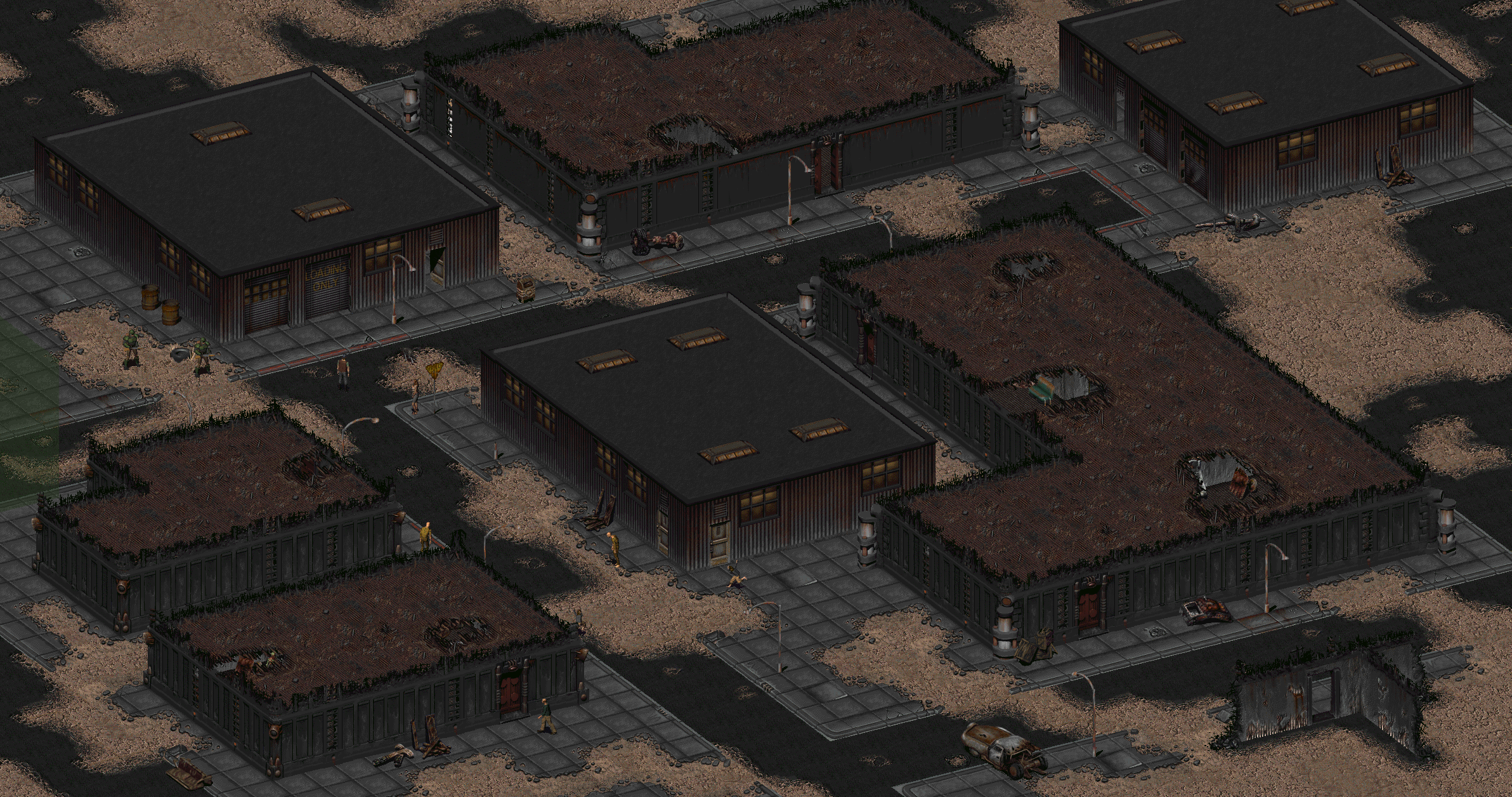rusty_shackleford
Arcane
- Joined
- Jan 14, 2018
- Messages
- 50,754

There does not seem to be a consistent definition of this anywhere, and there seems to be multiple interpretations of what it means.
An example I came across:
I think they're mistaken here in referring to it as a collection of "hub worlds" which adds to the confusion. It just has multiple hubs and as such the phrase "hub world" and "hub based" are entirely unrelated.
cf. https://www.ahdictionary.com/word/search.html?q=Hub
After scouring RPGCodex, here are some examples of games referred to as "hub based":
Notably, BG1 is open world. BG2 is hub based. BG1's maps are all directly connected to each other.

So a "hub-based" game seems to be a game that has a collection of small, highly detailed, relatively open levels that are not directly connected to each other and you travel to them through an abstracted travel interface.
Thoughts?
An example I came across:
a hub world is a world that is a hub
a hub based world is a world based on a hub
"Hub world" is a single hub with open-world in a hub-based game. i.e. one of the multiple smaller size open-worlds that are somehow connected.
Hub-world: a single small open-world map
Hub-based: Has multiple hub-worlds
…But I have no idea where they came up with that definition of "hub world". All definitions seems to point to a "hub world" being something like the overworld screen in many early Mario games.
https://www.giantbomb.com/hub-world/3015-1855/
Hexen is described as having a "hub world" such as this in a 1997 review:
https://www.giantbomb.com/hub-world/3015-1855/
Hub Worlds are worlds that connect different levels. Most often found in platforming games, the hub world can be considered the modern equivalent to the level select and map screens of old. Generally Hub worlds are based around one primary area, such as a castle or a town, however their are exceptions to this rule (For example see I-ninja.) While 3D games arguably popularized the format, it is by no means exclusive, 2D games with hubs also exist, such as Braid and Bubsy II.
The concept dates back to 005 (1981) and Dragon Buster (1984). The concept of a hub building (castle) first appeared in Sega's Castle of Illusion (1990), which inspired Super Mario 64 (1996), which in turn inspired later 3D games.
Hexen is described as having a "hub world" such as this in a 1997 review:
… The puzzles in Hexen involve many different worlds linked together by a central "Hub" world. Actions in each world open doors and solve puzzles in another world. Most puzzles involve finding switches in different worlds, and then trying to see the effects on the Hub world.
I think they're mistaken here in referring to it as a collection of "hub worlds" which adds to the confusion. It just has multiple hubs and as such the phrase "hub world" and "hub based" are entirely unrelated.
cf. https://www.ahdictionary.com/word/search.html?q=Hub
2. A center of activity or interest; a focal point: Hollywood is the hub of the US movie industry.
After scouring RPGCodex, here are some examples of games referred to as "hub based":
It's a hub based game like KOTOR 1/2 or Mass Effect.
Finished up the Director's Cut now. To me, this is one of the better RPGs I've played recently, and it'd rank pretty damn good on my all-time list also probably. The structure of it makes it different (the hub-based mission approach) than many RPGs but if one can accept that, then well... There's a lot to like it Dragonfall I think.
PoE is very much hub based.
Notably, BG1 is open world. BG2 is hub based. BG1's maps are all directly connected to each other.

So a "hub-based" game seems to be a game that has a collection of small, highly detailed, relatively open levels that are not directly connected to each other and you travel to them through an abstracted travel interface.
Thoughts?



















![Glory to Codexia! [2012] Codex 2012](/forums/smiles/campaign_tags/campaign_slushfund2012.png)


![The Year of Incline [2014] Codex 2014](/forums/smiles/campaign_tags/campaign_incline2014.png)



